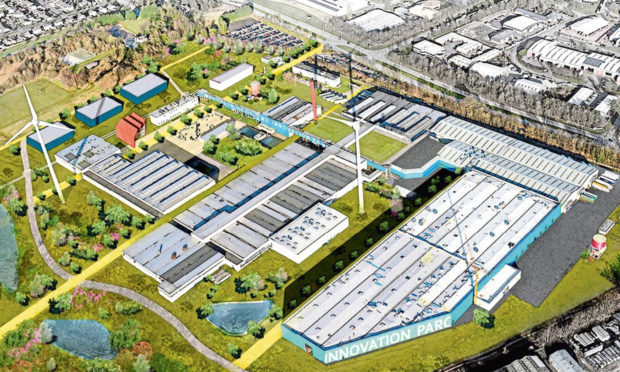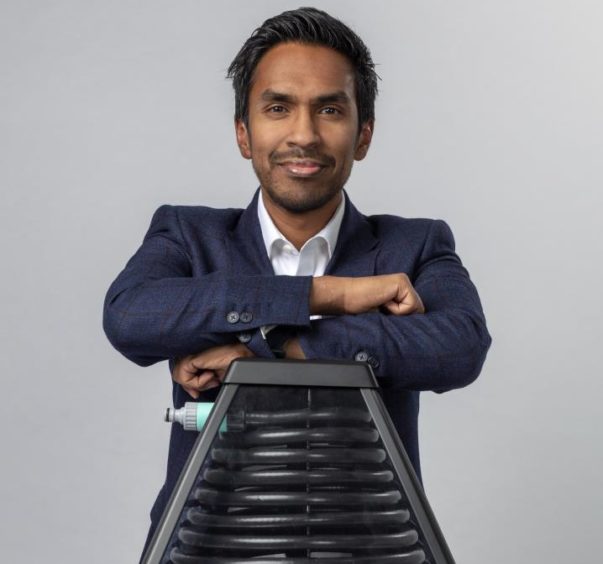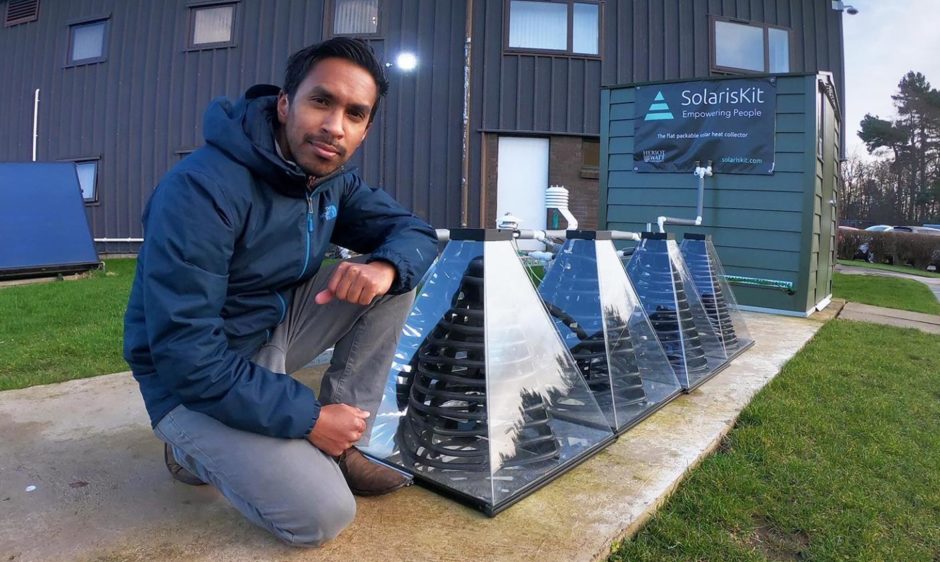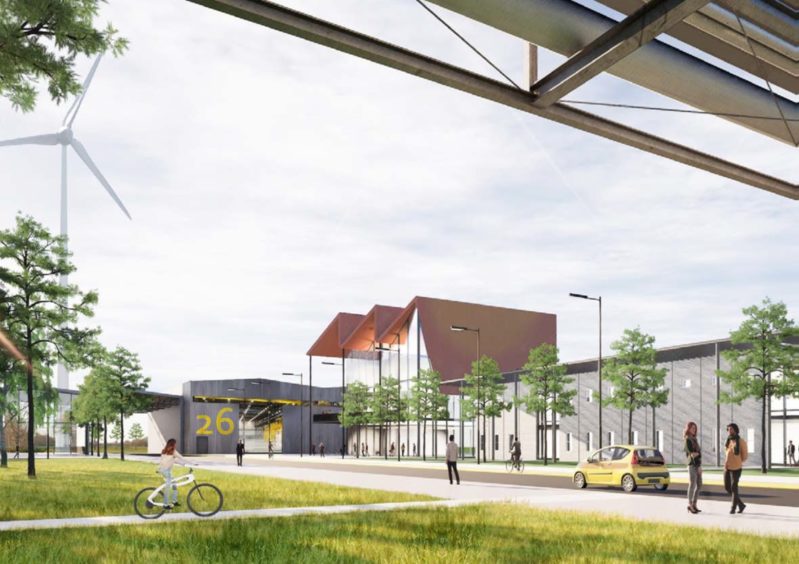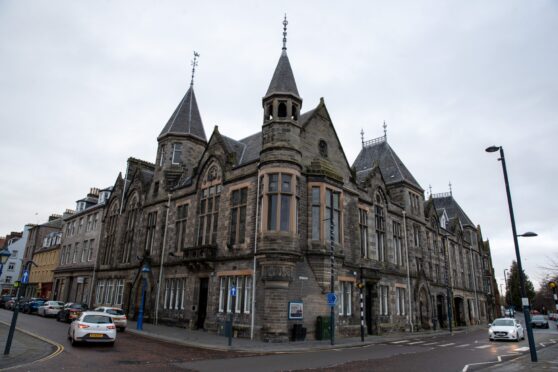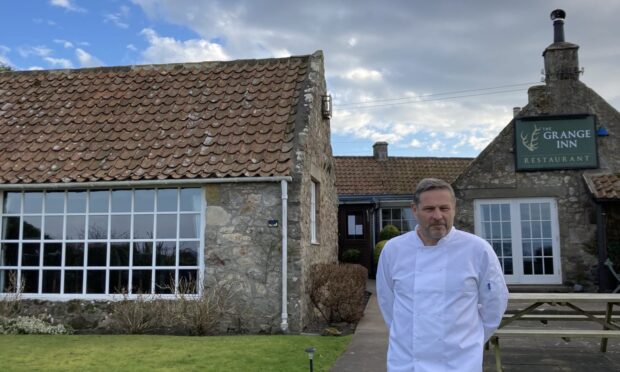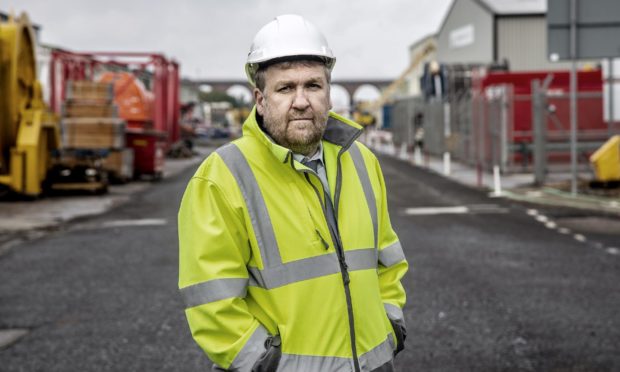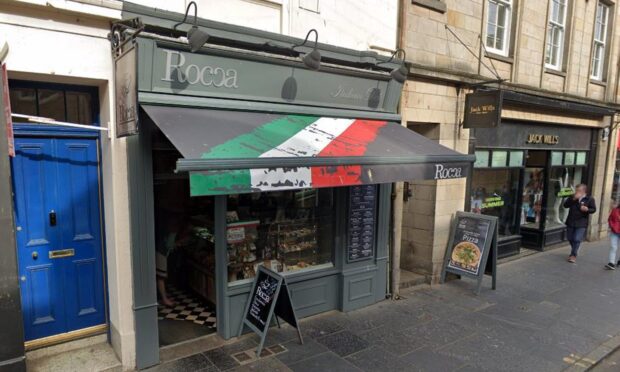Dundee’s Michelin Scotland Innovation Parc (MSIP) could be replicated around the world.
That’s the view of the boss of an innovative energy firm which has set up at the former Michelin tyre factory.
The Baldovie site intends to become a centre of excellence for battery and hydrogen technologies.
It aims to replace the 850 jobs as a result of Michelin closing with firms in the low carbon and sustainable transport fields.
One of the first businesses to set up on site is Solariskit, which produces a device to turn solar power into hot water.
Low-carbon concept could go global
Chief executive Faisal Ghani believes MSIP will become a global success and copied by other countries.
“MSIP is a fabulous initiative and it reflects well on Scottish Enterprise, Dundee City Council and Michelin to be so forward thinking,” he said.
“The concept of a low-carbon campus if done correctly could be replicated globally.
“All these different solutions under the same rooftop will allow collaborations to occur in response to the climate emergency.
“The site has been very accommodating and welcoming. We’re very keen to do whatever we can to help make MSIP a success.”
Plans to change lives
Solariskit hopes to transform the lives of millions of people living in Africa with its thermal collector.
Sunlight enters the collector through its transparent side panels and strikes a black, internal coil, which is then heated through solar radiation.
Water is then circulated through the coil using a small pump, heated and stored in an insulated water tank for later use.
He said: “I was reading a paper one day that said households in Rwanda are forced to spend around 40% of their income paying their energy bill. 70% of that was just going towards heat and water.
“As a solar engineer who has been working in this space for the last 15 years I just found this crazy.
“Rwanda is an equatorial country that has huge amounts of sunlight. Why would they not access this huge resource?
“It could make so much improvement to quality of life for millions of people in Africa as a whole.”
The Ikea solution
Unlike other academics in this field who have developed highly engineered expensive solutions, Mr Ghani focused on simplicity.
The Solariskit device can be flatpacked and weighs under 10kg. The inventor pitches the company as the “Ikea solution for solar hot water”.
It can be built in 20 minutes without any tools and is to be marketed for around £100 in Africa.
“I think we have a solution that could help millions of people in Africa.
“The continent is experiencing rapid urbanisation and this reduces demand on the grid.
“Then there’s potential use in South East Asia and South America – there’s an enormous opportunity for our solution in India as well.”
Manufacturing to start
Solariskit, which moved to MSIP from Edinburgh earlier this month, is preparing to start its first manufacturing run of 200 units.
One hundred units will be sent to Rwanda with the other units intended for the glamping market in Scotland.
Some of the components are produced overseas but the highly skilled engineering, packing and shipping will take place at MSIP.
It will build an indoor solar test rig in Dundee for research and development.
The company is currently recruiting for its sixth member of staff. But it has plans to grow to be a workforce of around 30 in the city.
Goddess of light an inspiration
Solariskit has raised around £400,000 in grants from Innovate UK, Converge Challenge and Royal Society of Edinburgh.
Mr Ghani, who was born in Bangladesh and raised in Australia, has worked in the field of solar technology for 15 years.
He moved to Scotland five years ago to take a position at Heriot-Watt University in Edinburgh.
He now calls Scotland home after meeting “a bonnie lass”. Their three-year-old daughter Thea is named after the Greek goddess of light.
“It’s an appropriate name for the daughter of a solar engineer,” the chief executive said.
“Hopefully we can help make the planet a little better for her generation.”
